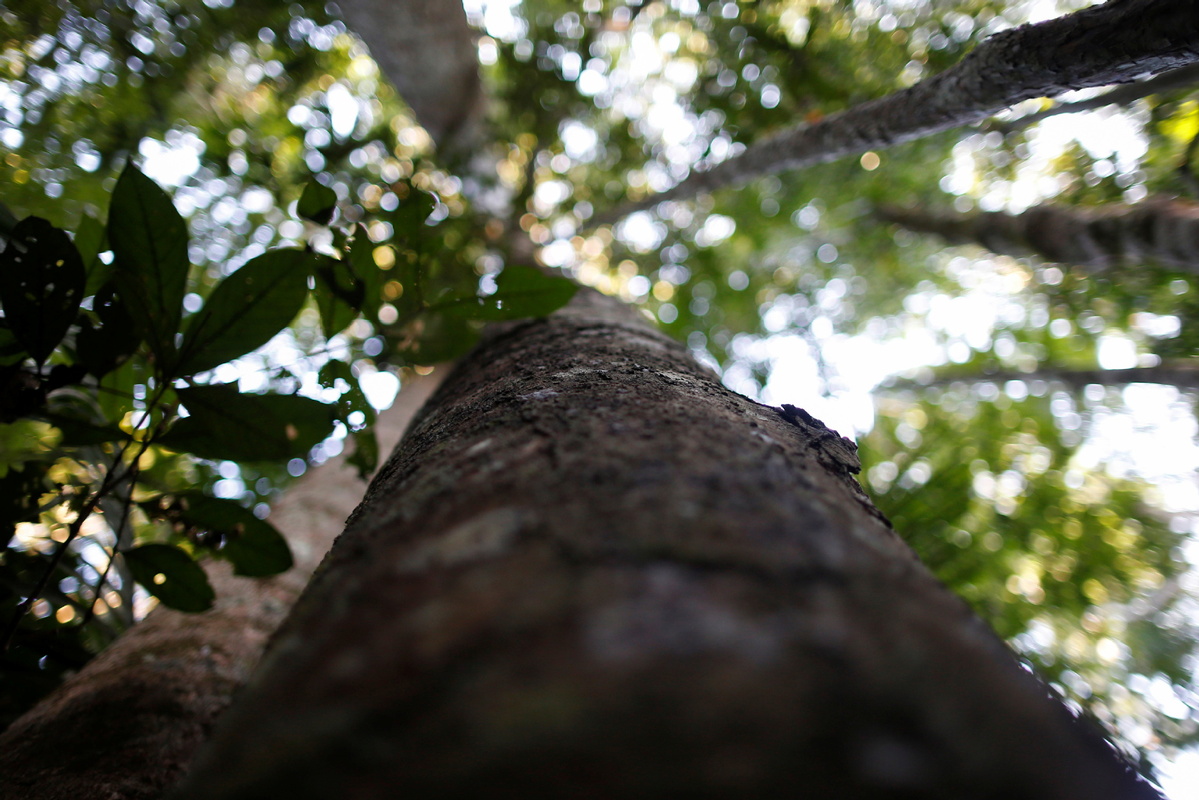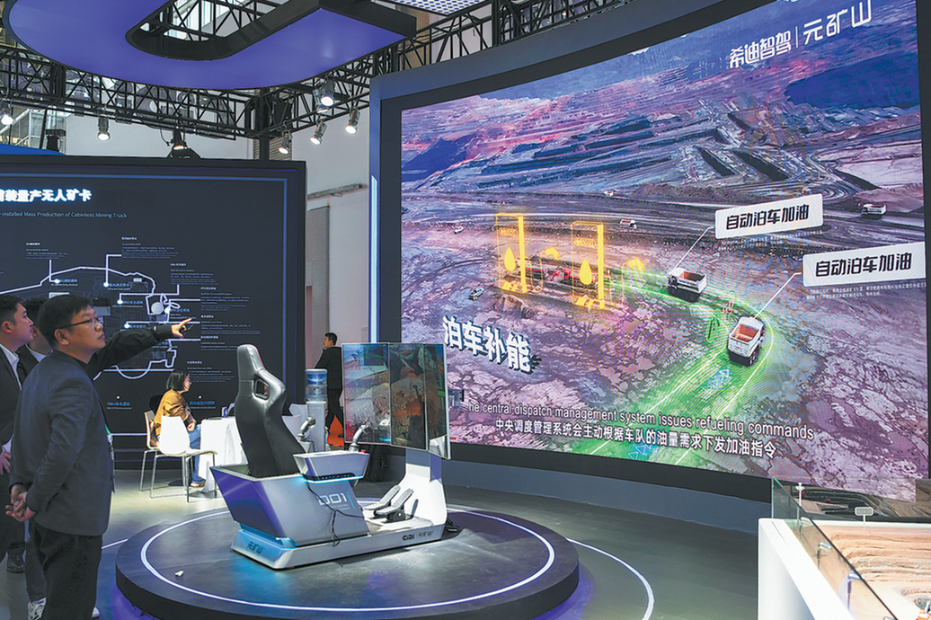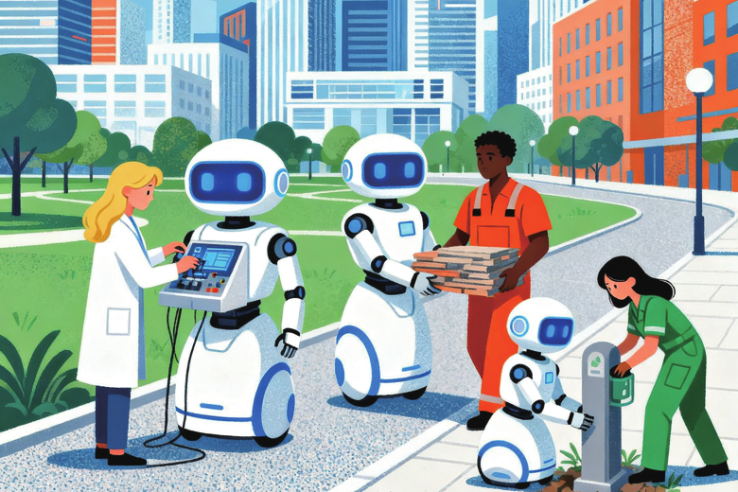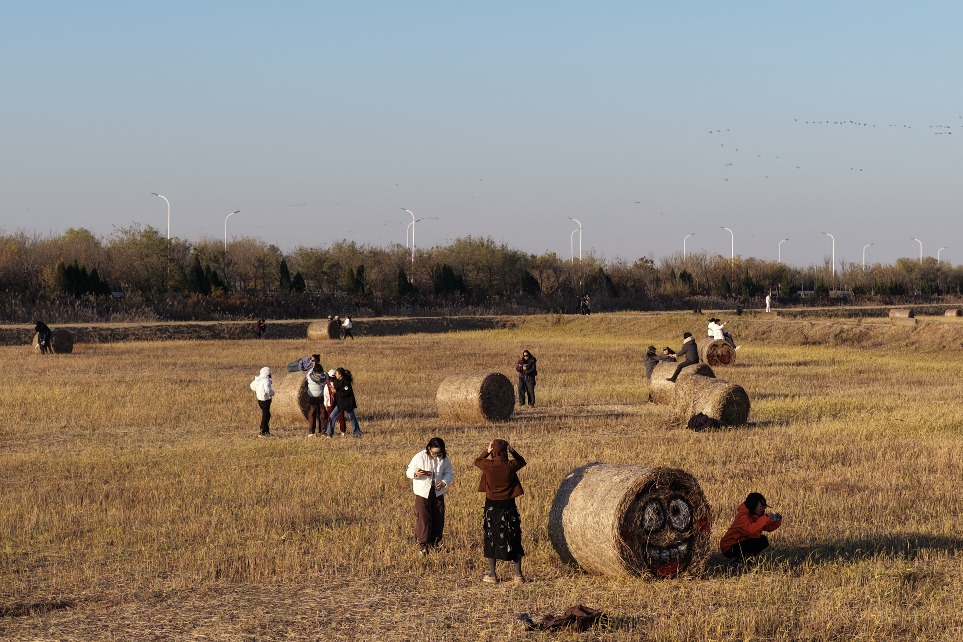Brazil following to low-carbon agriculture path
By Tereza Cristina/Joaquim Leite | China Daily | Updated: 2021-10-27 07:36

As we approach the United Nations Climate Change Conference amid the growing imperatives for sustainable development and climate action, the international community must make the most of the opportunity to ensure ambitious results in Glasgow, the conference venue, and beyond.
As a long-time champion of the environmental agenda and an agri-food powerhouse, Brazil stands ready to make positive contributions to the collective efforts aimed at keeping global temperature within the limits agreed upon in the Paris Agreement.
Over the last 50 years, Brazil has transformed from a net food importer to the world's third-largest agricultural exporter, while using only a fraction of its territory for agriculture and preserving over two-thirds of its native vegetation. In a world under increasing pressure to meet the growing global demand for food in a sustainable way, this success stands as a uniquely singular achievement.
Investments in science and technology, and efforts to promote innovation have been at the heart of Brazil's agricultural revolution. The adaptation of plant and animal varieties to the tropics has diversified production. The development of integrated crop-livestock-forest systems, with the rotation of grains, beef and planted forests, has made it possible to produce two, sometimes three harvests a year on the same land. As a result, grain production since the late 1970s has increased by more than 420 percent, while the cultivated area has grown by just over 40 percent.
These advances have brought enormous social, economic and environmental benefits to Brazil. Agriculture is now the most dynamic sector of the Brazilian economy, directly responsible for more than 18 million jobs and about 20 percent of GDP. The cost of food has been halved compared with the 1970s, and economic and social development has reached the rural interiors of the country. And the cities where agricultural activities are concentrated are among those with the highest human development index.
In livestock production, results are no less impressive. Over the past 20 years, extraordinary productivity gains have drastically reduced emissions per unit of beef and milk produced, and sustainable intensification techniques now allow for the full offset of remaining emissions, resulting in carbon neutral beef, a product already available in the Brazilian market.
This is the successful trajectory Brazil relies on to build the sustainable agriculture of the future and meet its development and climate goals. Building on this progress will require greater emphasis on international diplomacy, collaboration and partnerships. Only enhanced international cooperation can offer an avenue for ambitious collective action.
In the coming years, the expansion of low carbon agriculture will continue to usher in additional productivity gains. The restoration of degraded pastures, of which there are almost 100 million hectares in Brazil, will enable further production increases while reducing pressure for conversion of new areas into agriculture. Technological innovations such as gene editing, digital agriculture and bio-inputs will pave the way for Brazil to continue growing the supply of healthy, affordable food to the world, in a competitive and sustainable way.
Brazil's track record in agriculture, however, is only a part of the story. As a developing country, Brazil still faces a critical challenge: promoting sustainable development in the Amazon biome, an area larger than the European Union that is home to more than 23 million Brazilian citizens, most of whom live below the poverty line.
In recent decades, a historical process of informal territorial occupation coupled with limited economic alternatives has led to the occurrence of illegal mining, land grabbing and deforestation.
Brazil recognizes this reality and is taking steps to address the problem.
In April 2021, at the Leader's Summit on Climate, Brazilian President Jair Bolsonaro committed to Brazil achieving climate neutrality by 2050-10 years sooner than originally intended-and ending illegal deforestation by 2030. Since then, the government has redoubled efforts to combat environmental crime and positive numbers have begun to emerge.
Ensuring the protection of public lands, enforcing environmental legislation and concluding the region's territorial planning are at the core of Brazil's strategy for the Amazon.
Through its environmental regulations, Brazil has imposed considerable restrictions on land use and exploitation of natural resources in the Amazon. At present, a vast majority of the biome is formally protected either in indigenous territories, environmental conservation areas, or on private lands, where Brazil's rigorous Forest Code stipulates that 80 percent of the property area must be preserved with native vegetation.
This represents a significant contribution to the world in terms of environmental conservation and climate action. The economic cost of renouncing the use of such resources must be objectively recognized, and sustainable development opportunities must be offered to the region's inhabitants. Completing negotiations on the Paris Agreement Rulebook will be crucial for creating such opportunities.
As a large exporter of agricultural products, Brazil has developed a strong awareness of the role agriculture can play in promoting economic growth and social inclusion, and producing positive environmental outcomes. But we are also keenly aware of its particular vulnerability to the impacts of climate change and the risks those pose to global food security.
Through open and transparent dialogue, shared goals can be identified and used as the basis for a new development cycle that will realize the socioeconomic promise of sustainable development while safeguarding environmental wealth for future generations.
A constructive vision, based on scientific evidence, partnership, and respect for national legislation, is the surest way to build the sustainable future we want.
We invite all to embrace this vision. Brazil is ready to do its part.
Tereza Cristina is Brazil's minister of agriculture, livestock and food supply, and Joaquim Leite is minister of the environment.
The views don't necessarily reflect those of China Daily.
If you have a specific expertise, or would like to share your thought about our stories, then send us your writings at opinion@chinadaily.com.cn, and comment@chinadaily.com.cn.
























